70/50:Mas talk on 1970
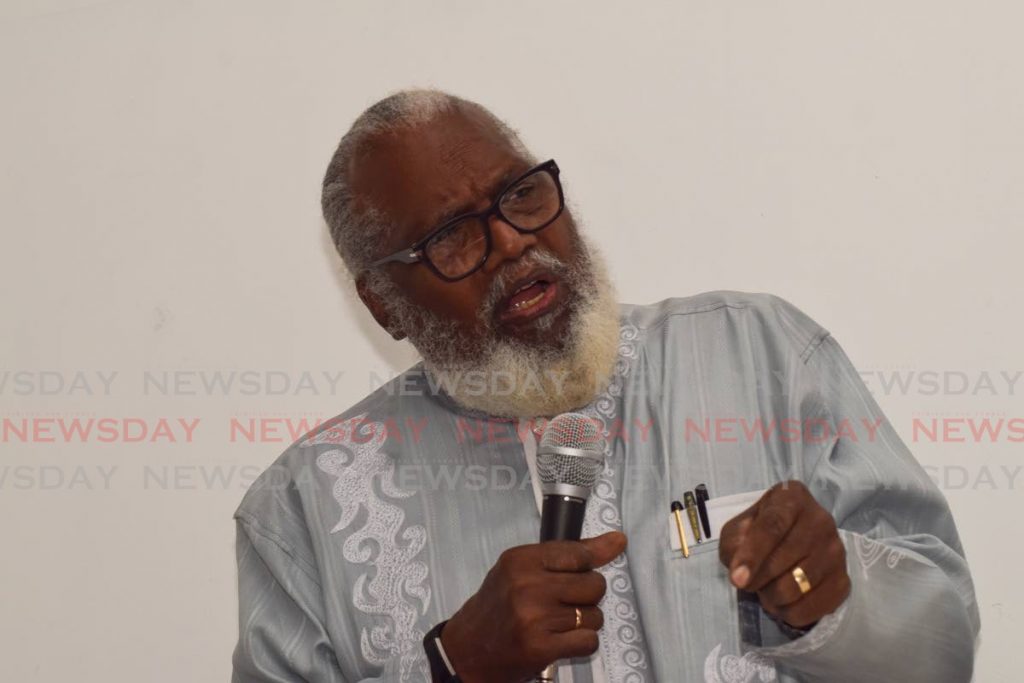
THE mas band Vulgar Fraction, as part of its band launch, hosted a panel discussion surrounding the 1970 Black Power Revolution/February Revolution.
The theme of the band this year is 70/50: Fifty After Seventy on Black Power Revolution anniversary, and the launch on February 11 saw fire-breathing moko jumbies, baby dolls and masked masqueraders taking to the streets of Belmont. Members of the bands Vulgar Fraction, Moko Somõkõw and Belmont Baby Dolls took part in a procession led by an egungun masquerader dancer and the Egbe Omo Oni Isese Traditional African Drummers.
The band will use its presentation to highlight aspects of the Black Power uprising of 1970 and how it has affected TT today, as well as address unanswered questions of the period.
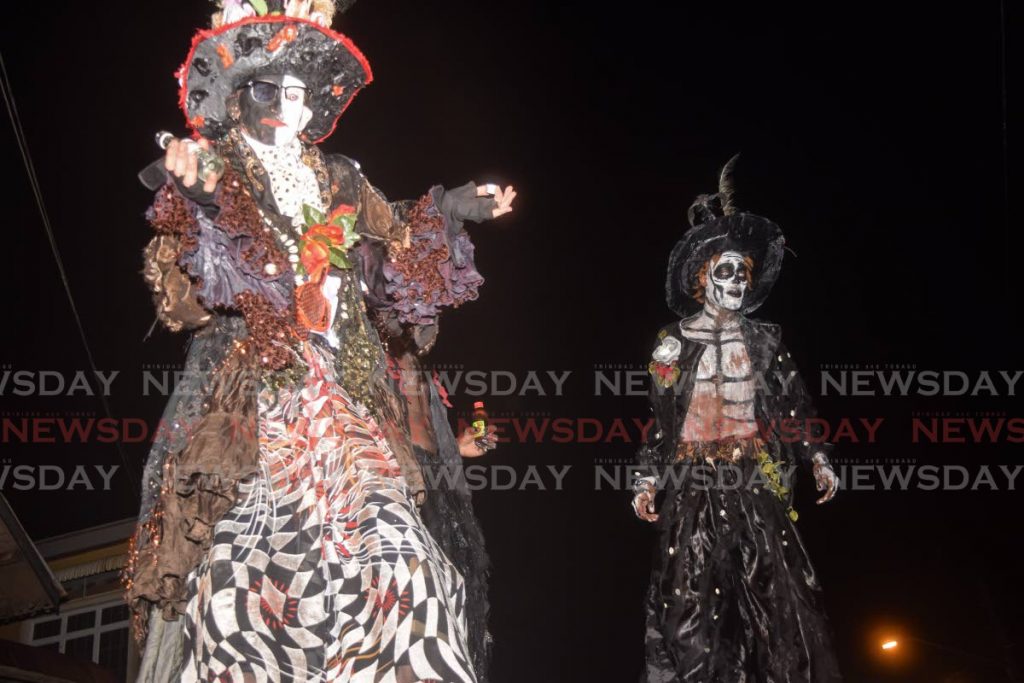
The panel discussion took place at the Propaganda Space, Erthig Road, Belmont. The panellists were Professor Emeritus Winston Suite, a 1970 state of emergency detainee, attorney and researcher David Millette, and founder of the Institute for Small Islands, Caroline Mair-Toby.
The Black Power Revolution, also known as the Black Power Movement, is the collective description given to events which included protests over racial discrimination against Caribbean students at the Sir George Williams University in Canada, artistic activism, cabinet resignations, a state of emergency, a failed defence force mutiny, the legitimate and illegitimate exercise of police power, damage to property, and fears of violence among all camps.
The National Joint Action Committee (NJAC), formed in 1969, was a coalition of groups fighting for social change in TT under the Eric Williams government. Following the protests, a state of emergency was declared on April 21, 1970, and over 50 protesters were imprisoned on Nelson Island. While most were eventually released, 17 were moved to the Port of Spain prison and charged with sedition. The charges were eventually dropped in 1976.
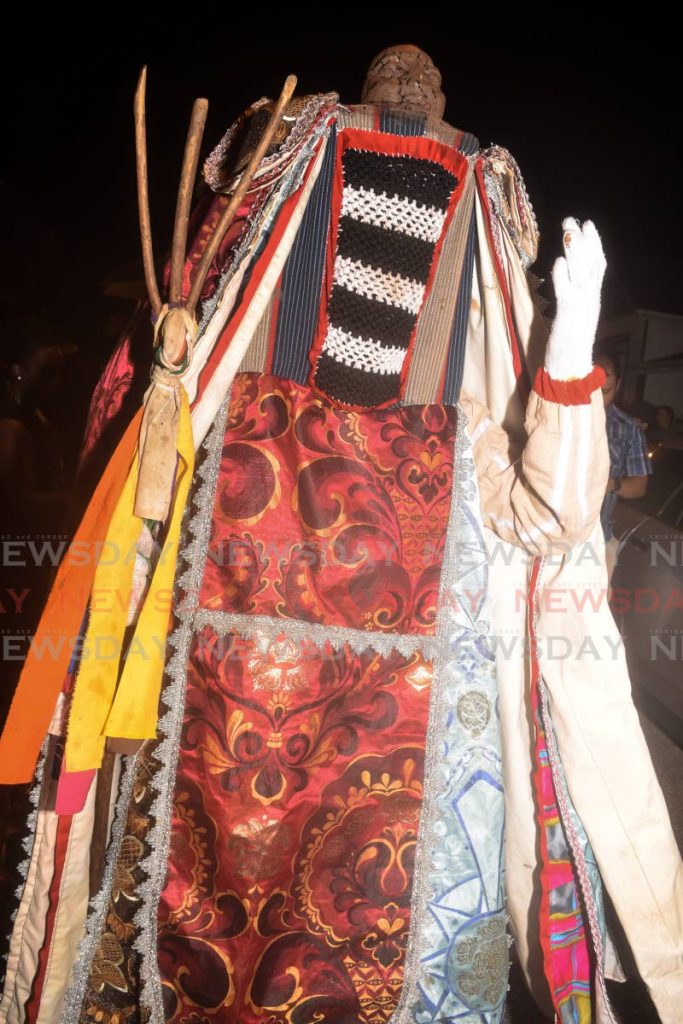
Suite, who was 30 in 1970, said he was approaching his 80th birthday and looking back at that time brought back painful memories. He said the public did not know that 1970 was the result of 18 streams of influence which were in place long before the events at the Sir George Williams University in Canada. He said, although NJAC was the one most highlighted in the media, there were eight groups active during the period, and it was the failure of these groups to bring about the proposed revolution that led to the formation of the National United Freedom Fighters (NUFF).
Suite said when the NJAC leadership was released from Nelson Island, the mistake they made was announcing that they had no interest in conventional politics. He said it was this faulty analysis that led to a faulty decision which resulted in the movement losing the support of the public.
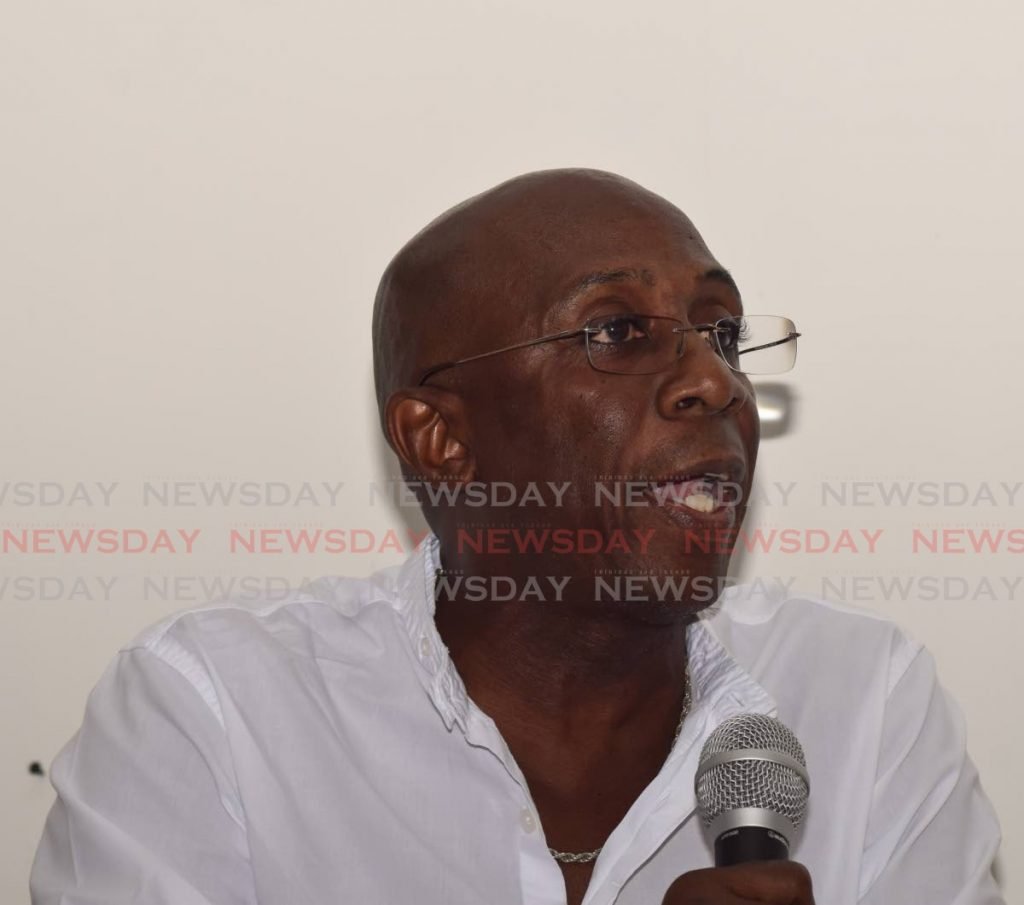
Millette presented an excerpt from his paper, Guerilla War in Trinidad: 1970-1974, which was published in the book The Black Power Revolution, 1970: A Retrospective, edited by Selwyn Ryan and Taimoon Stewart. In it, Millette chronicled some of the events surrounding NUFF, a guerilla band of young men and women which was formed in 1972, in response to the conditions present at the time, which included police brutality and a disappointment in NJAC.
Millette, who grew up around members of NUFF, presented eyewitness testimony, including that of feared Flying Squad leader, Randolph Burroughs, the commissioner of police. He spoke of the political ideologies which drove the formation of NUFF, the men and women who were part of it, how they were perceived and the events that led to the police killing of Beverly Jones and Basil Davis during the unrest of the time.
Suite said Millette’s presentation enlightened him, as he thought it was the first time anyone attempted to analyse the errors made during the revolution. He said he is saddened by the daily killings and feels he is witnessing the death of a generation. He related those deaths directly to the failure of the 1970 Revolution. Many members of the audience said it was the first time they had heard some of this part of TT history.
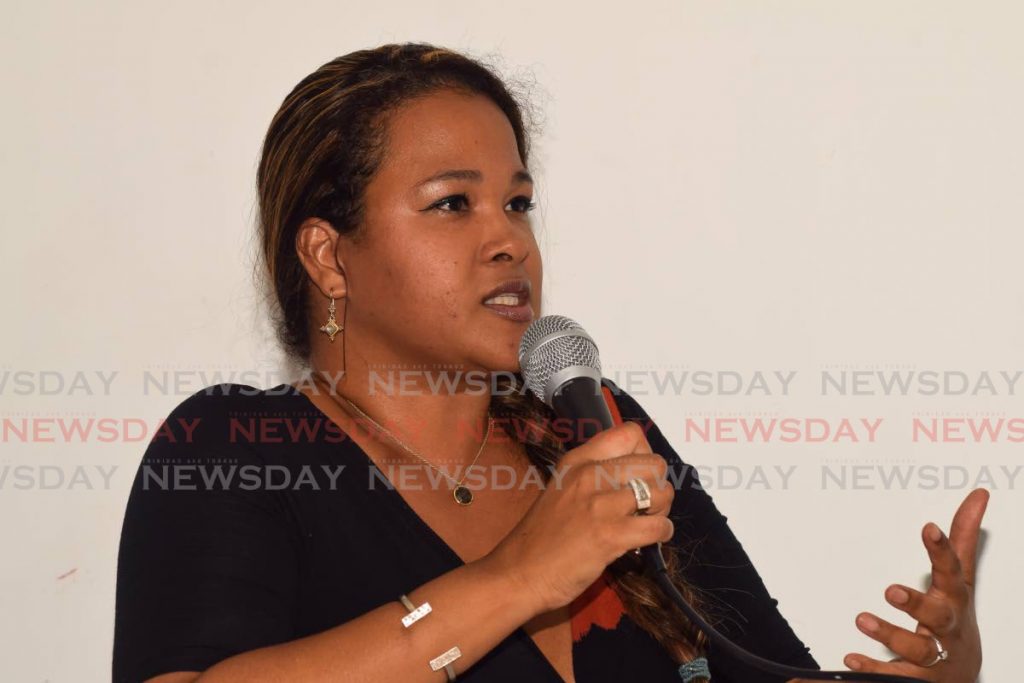
Mair-Toby, an environmental lawyer, spoke about the inevitability of climate change and what it would mean to small island states such as TT. She made connections between the past, racism, capitalism, poverty and environmental destruction. With sea levels rising and islands beginning to sink, she said that eventually islanders would become climate change refugees. However, she said there are no international refugee laws which provide help for people fleeing environmental harm. She pointed out the way governments and citizens of countries treat refugees currently, noting specifically the treatment of Venezuelans in TT and black and brown refugees in the US, and said this could become the fate of current and future generations.
She said there are laws which protect stateless people, but these would not apply because the island will still exist even though people will be leaving because it had become unliveable.
Mair-Toby said even if TT stopped all emissions immediately, it would barely have an impact on the world environment, but there are things that each person can do to contribute to lessening the impact of global warming, including eating less meat, composting, and lobbying government for change.


Comments
"70/50:Mas talk on 1970"